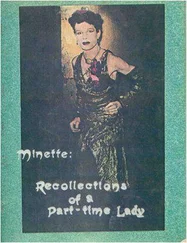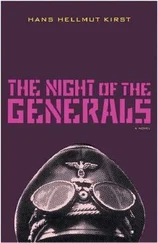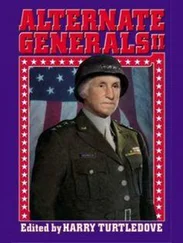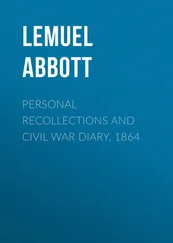William Shanks - Personal Recollections of Distinguished Generals
Здесь есть возможность читать онлайн «William Shanks - Personal Recollections of Distinguished Generals» — ознакомительный отрывок электронной книги совершенно бесплатно, а после прочтения отрывка купить полную версию. В некоторых случаях можно слушать аудио, скачать через торрент в формате fb2 и присутствует краткое содержание. Жанр: foreign_antique, foreign_prose, на английском языке. Описание произведения, (предисловие) а так же отзывы посетителей доступны на портале библиотеки ЛибКат.
- Название:Personal Recollections of Distinguished Generals
- Автор:
- Жанр:
- Год:неизвестен
- ISBN:нет данных
- Рейтинг книги:5 / 5. Голосов: 1
-
Избранное:Добавить в избранное
- Отзывы:
-
Ваша оценка:
- 100
- 1
- 2
- 3
- 4
- 5
Personal Recollections of Distinguished Generals: краткое содержание, описание и аннотация
Предлагаем к чтению аннотацию, описание, краткое содержание или предисловие (зависит от того, что написал сам автор книги «Personal Recollections of Distinguished Generals»). Если вы не нашли необходимую информацию о книге — напишите в комментариях, мы постараемся отыскать её.
Personal Recollections of Distinguished Generals — читать онлайн ознакомительный отрывок
Ниже представлен текст книги, разбитый по страницам. Система сохранения места последней прочитанной страницы, позволяет с удобством читать онлайн бесплатно книгу «Personal Recollections of Distinguished Generals», без необходимости каждый раз заново искать на чём Вы остановились. Поставьте закладку, и сможете в любой момент перейти на страницу, на которой закончили чтение.
Интервал:
Закладка:
William Franklin Gore Shanks
Personal Recollections of Distinguished Generals
The purpose of this volume is to make more familiar to the general public the actual characters of some of our great military leaders during the late war. I have attempted to portray them not as on parade, but in undress uniform, and to illustrate not only their great military qualities, but more particularly their mental peculiarities and characteristics. These pages will be found to contain many facts about some of the great battles which official reports have left untold, with such recollections of our generals as history proper will not perhaps condescend to record, and to embrace singular facts about great campaigns and strange stories of great men. The portraits are freely drawn. They are made from actual studies, if not special sittings, and while taking care to give every beauty, I have omitted none of the deformities or blemishes of my subjects, though I have told in full detail their virtues, and have touched on their faults and vices lightly. I have avoided alike extreme extravagance in praise or censure. Still there is enough shadow to the pictures to give the necessary, if not agreeable contrast to the lights. The reader must not, however, mistake the stand-point from which I have written. Distance, unfortunately for truth, lends enchantment not only to objects, but to men. The atmosphere of Olympus produces many phantasmagoria, and the great at a distance exist to our eyes in a sort of mirage. The philosophy of perspective as applied to natural objects is reversed when applied to mankind, and there are very few men who do not grow smaller as one approaches them. Most men are pyramidal in shape only, not proportions. "No man is a hero to his valet." Even Jupiter was ridiculous at times to Homer. Very few generals have appeared great to the war correspondents; and though very few of the latter can claim to be descendants of Diogenes, they can assert, with equal positiveness, that very few of the generals have been Alexanders, and that "the very sun shines through them." I have written under the disadvantage of being too near the objects drawn; and those who do not know the subjects as well may imagine I have made them undeservedly Liliputian in dimensions.
Writing contemporaneous history is the most thankless of tasks, and I discover also one of the least independent of labors. Still I have not written with a goose-quill, and there has been some gall in my ink, yet I do not think I have any thing in the ensuing chapters to blot. I do not think I have done any man injustice. I have written many sentences and made many assertions which will doubtless be termed strong, but in writing these I am only the amanuensis of truth; and I write with the firm belief that "historical truth should be only less sacred than religious truth."
I have no doubt, however, that others will think differently after perusing the book. When publishing in Harper's Magazine I was told that the language of some of these sketches offended the subjects, but I have been unable to find any fact that ought to be stated otherwise. I think it best to say, for the benefit of all who may choose to object or condemn the volume as now published, that I have written nothing that I do not believe to be true – I trust not one sentence that, dying, I would wish to blot, and certainly not one word that, living, I intend to retract.
New York, Sept., 1866 .
CHAPTER I.
SHERMAN AS A STRATEGIST
Of the few really great men who have been developed by the late war in this country, and who will leave a lasting impression on the minds of the people, William Tecumseh Sherman may be regarded as the most original. His name has been made more widely prominent, and his character more universally popular, than that of any other of our heroes; but it has been less in consequence of his brilliant success as a leader than by reason of his strongly-marked characteristics of person and mind. He is, without doubt, the most original and eccentric, though not the most powerful – the most interesting, though not the most impressive character developed by the rebellion. He is by far our most brilliant general, but not by any means the most reliable; the most fascinating, but not the most elegant; the quickest, but not the safest; the first to resolve, but not the most resolute. As a man he is always generous, but not uniformly just; affectionate by nature, but not at all times kind in demonstration; confiding, and yet suspicious; obstinate, yet vacillating; decided, but not tenacious – a mass of contradictions so loosely and yet so happily thrown together as to produce the most interesting combination imaginable. General Sherman's character has many beauties and virtues, but also many glaring defects and faults. His picture, as I have seen and studied it, possesses what the artists call "great breadth of light and shade," and is full of contrasts alternately pleasing and offensive, and which, in order to properly analyze the character, should be portrayed and described with equal force and impartiality. He is a character without a parallel among his contemporaries, though not without a contrast; and it is for the latter reason that I have chosen his character as the one upon which to base, as it were, the following estimates of the characters of his fellow-officers of the United States army, and not because I think, as may be supposed, that he deserves the first place in the rank of our great captains. The war lasted long enough to give the leaders, if not their proper places in popular estimation, at least their true linear rank in the army. General Sherman may be considered as first among the strategists of the war; General George H. Thomas as first among the tacticians; but Grant, combining the qualities of both tactician and strategist, must always be ranked as greatly the superior of both Thomas and Sherman.
General Sherman may be described as a bundle of nerves all strung to their greatest tension. No woman was ever more painfully nervous; but there is nothing of the woman's weakness in Sherman's restlessness. It is not, as with others, a defect of the organization; it is really Sherman's greatest strength, for from it results the brilliancy of conception and design which has characterized his strategic movements, the originality which has appeared in his views on political economy and the policy of war, and the overwhelming energy which is "his all in all," the secret and cause of his great success. From his extreme nervousness results the most striking feature of his character – a peculiar nervous energy which knows no cessation, and is resistless. It is not merely that energy and quickness of movement which naturally belongs to nervous organizations, but intensified a hundred fold. At the same time, it is energy without system, and oftentimes without judgment, but nevertheless always effective. General Sherman is the engine, but he is not always the engineer. He furnishes the motive power, but he frequently requires some person or thing to keep him to the track; in fact, he requires to be controlled and directed. He is untiring in his efforts; you can never dismay him with the amount or frighten him with the dangers of a task; and he hesitates at nothing, matters great and small receiving his attention. He is no believer in that too common fallacy that labor is a wearisome waste of the physical and vital powers; a punishment, not a privilege; and degrading, not elevating. Work is necessary to his existence, and hard, earnest work at that. Always a hard, earnest worker, he devoted, during the continuance of the war, but little time to sleep, and that little sleep was never sound. His active mind, I once heard him say to a fellow-officer, delights in preposterous dreams and impossible fancies, and, waking or sleeping, continues ever active in planning and executing.
Читать дальшеИнтервал:
Закладка:
Похожие книги на «Personal Recollections of Distinguished Generals»
Представляем Вашему вниманию похожие книги на «Personal Recollections of Distinguished Generals» списком для выбора. Мы отобрали схожую по названию и смыслу литературу в надежде предоставить читателям больше вариантов отыскать новые, интересные, ещё непрочитанные произведения.
Обсуждение, отзывы о книге «Personal Recollections of Distinguished Generals» и просто собственные мнения читателей. Оставьте ваши комментарии, напишите, что Вы думаете о произведении, его смысле или главных героях. Укажите что конкретно понравилось, а что нет, и почему Вы так считаете.












